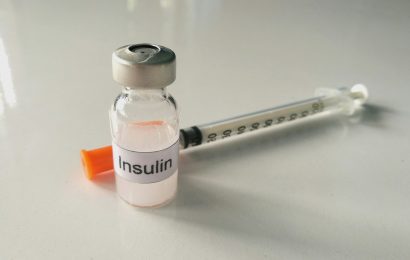I’m a worrying kind of guy. If the light is green, I worry about how long I have until it turns red. But does worrying help when you have a condition like diabetes? I’m starting to think it doesn’t.
Right now Aisha and I are going through a stressful time — legal problems that are costing a lot of money, putting us in unpleasant situations, and making us insecure about our living situation. This morning I woke up thinking about the case for hours, even though there was nothing I could do about it. My blood pressure has been up for months.
You may find this a familiar situation. Coping with a chronic condition such as diabetes or multiple sclerosis (MS) means having a source of worry that never goes away. With my MS, I can always worry: Is tomorrow the day I can’t stand or can’t sit up or can’t go to the bathroom by myself?
Every morning I do stretches that include lying on my stomach and flexing my knees so my feet point up toward the ceiling. For the last four days, the right leg won’t do that. So I could worry that I’m getting worse, except I know from experience this ability comes and goes. Hopefully when the stress lets up, the leg will come back online.
With diabetes, one can always worry about complications. Will I go blind? Will I lose sexuality? Will this neuropathy pain ever get better? Will I have to start insulin? And probably a dozen other worries that can flare up every time you feel a twinge or get a higher than usual blood sugar reading.
But does worrying about those things help? Maybe the fears motivate you to work harder at self-management. But maybe they just stress you out, and stress raises blood sugar. Maybe it would be better sometimes just to trust that things will be all right.
I’m thinking about those Buddhist monks who go out with their empty bowls each day. They don’t even approach people. They just sit there and people put food or money in their bowls. I’m sure that sense of trust helps them meditate.
I’m not really a religious person, but some religious stories are powerful teachings. In the book of Exodus, the Israelites were in the desert without food. God gave them a food they called manna every morning, but with the instruction they should only gather enough for that one day. Don’t save any for tomorrow.
That must have been really hard advice for the worriers to follow. I don’t think I could have. “We’re out here in the desert and you want us to throw away food?” But the manna went bad overnight anyway. They had to trust there would be more the next day.
That story is a parable. Trusting the world like that may be healing when we deal with a chronic illness. I’m not saying ignore your self-management and trust that God will take care of you. But I am thinking maybe not to worry too much. Maybe the world will take care of us if we let it and help it.
Spiritual and religious people often talk about abundance. They think the world is an abundant place where there is plenty for everyone, and blessings come to us from unexpected directions.
That sounds so much less stressful than living in scarcity, the way I always have thought of my life. Maybe if we let go a bit, blessings come to us. Maybe they’re already there and we just don’t see them.
Actually, I’m seeing that in this crisis Aisha and I are in. While it’s been costing us money, two monetary gifts have come to us unexpectedly, so we can at least pay our lawyer bills. Maybe the world is an abundant place.
So what is the right balance of worry and trust? Maybe the most important thing is to feel OK about yourself — that we are worthy of being here, of being healthy and happy. If we do that, perhaps abundance comes to us. Perhaps we will be less likely to develop complications or progression of illness.
Are you more of a truster or a worrier? I’ve almost never allowed even the thought of abundance to enter my life, much less the actuality. Seeing the world as abundant would really help me now. It would be peaceful. It might help you, too.
P.S. I was talking with a neighbor about this essay. He has a tough life, and he told me he starts every morning by telling himself, “Everything is going to be all right” several times. I like that idea. Maybe I’ll start tomorrow.
P.P.S. I started using my neighbor’s mantra two days ago, and today my blood pressure, which has been around 140/100, is 115/75. Maybe there is something to this abundance thing.




